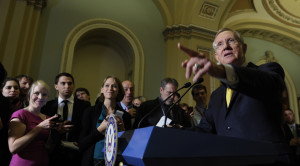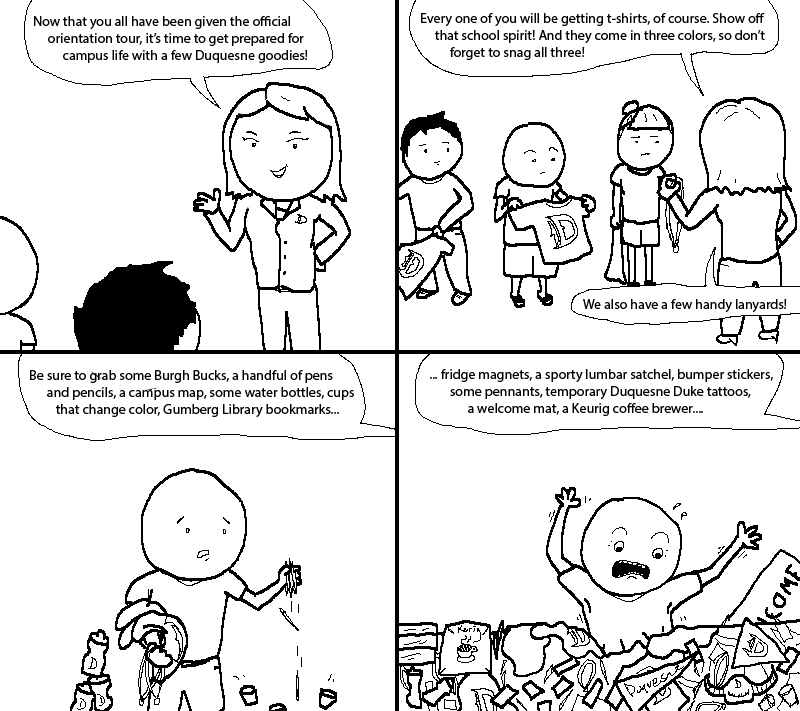
By Pat Higgins | Asst. Sports Editor
After a fall marred by a 16-day government shutdown, a $1.1 trillion budget passed Congress on Jan. 16, introducing some semblance of stability in the capital in the first quarter of 2014.
The 1,582-page bill, which passed through the House of Representatives in a lopsided vote on Jan. 15 and a 72-to-26 measure in the Senate a little more than 24 hours later, increases spending by about $26 billion compared to 2013’s total.
The compromise-spending bill that funds the government through September comes after months of bipartisan divide dominated the agenda in Washington. It is the first time since 2012 that Congressional action determined agency-by-agency spending.
The Jan. 16 announcement came just weeks after the federal government voted to end its first shutdown since 1996, extending the debt ceiling deadline to Feb. 7.
While some experts say the bill’s passage is indicative of an improving climate in our nation’s capital, Patricia Dunham, chair of the political science department and associate professor in the McAnulty College and Graduate School of Liberal Arts, said she believes the bipartisan agreement is more circumstantial, considering Congressional elections take place later this year.
“Members of Congress have to go back and campaign [in primary and general elections in May and November],” Dunham said. “Even conservatives, who in the past have tried to shut the government down, don’t want to go back home and tell their constituents and say they weren’t able to pass legislation.”
The bill passed the House with ease (359-to-67) and garnered the Senate’s approval a day later. Fifty-three Democrats, 17 Republicans and two independents approved the bill, while all 26 senators in opposition were Republicans.
According to a release from the Senate Budget Committee, the highest priority is “to create the conditions for job creation, economic growth and prosperity build from the middle out, not the top down.”
The budget, which many experts believe will be Congress’ most significant decision of 2014, funds Obamacare, increases spending for NASA and the Army Corps of Engineers and calls for spending cuts to the Internal Revenue Service and foreign aid. Federal workers and military personnel will receive a 1 percent increase in pay.
Though the passage is significant in that Congress was able to agree on a responsible spending bill, Dunham remains skeptical.
“They’re already going to be plagued with a label of ‘Do-Nothing Congress,’” Dunham said. “The fact is that the budget process that Congress has fell apart years ago. They don’t meet their own deadlines. They put off things until the budget is already stopped.”
Matthew Marlin, chair of the economics and qualitative sciences department in the Palumbo Donahue School of Business Administration, related the Congressional struggle these days to a battle in the trenches, which is nothing new in the realm of American political debate.
“I think this is the norm,” Marlin said. “The sequester [last year] was kind of the exception to the rule.”
According to a release from the Senate Budget Committee, the budget will pay for the Affordable Care Act, the expansive healthcare law that President Barack Obama passed in March 2010.
Regardless of the ideological gap that remains in the healthcare debate that Marlin calls “more of a political issue than an economic issue,” he said a slow-growing work force is the reason more than a quarter of the Senate oppose the bill – they don’t think Obamacare is going to pay for itself anytime soon.
But the Dec. 24 deadline for customers to sign up for healthcare on the federal exchange, effective Jan. 1, 2014, has passed.
While healthcare remains a topic ripe for debate moving forward, the budget aids the effort to tackle the national deficit and debt responsibly. The $1.85 trillion in new deficit reduction builds on the $2.4 trillion in deficit reduction since the Simpson-Bowles report was released in 2010. The bipartisan report set a goal to reduce $4 trillion of the deficit over 10 years. According to Marlin, this rapid deficit reduction “means the Republicans are winning the skirmish.”
But the fact of the matter remains: Congress successfully passed a bipartisan budget. Leaders negotiated across the floor and met in the middle to pass a $1 trillion spending budget just months after the government shutdown because of a failure to do so in October.
Patty Murray (D-WA), who served as chairman of the Senate Budget Committee during negotiations, said in a release that the spending bill is a major step in the right direction for the country as a whole.
“I believe the Senate Budget is a strong and responsible vision for building a foundation for growth and restoring the promise of American opportunity.”



